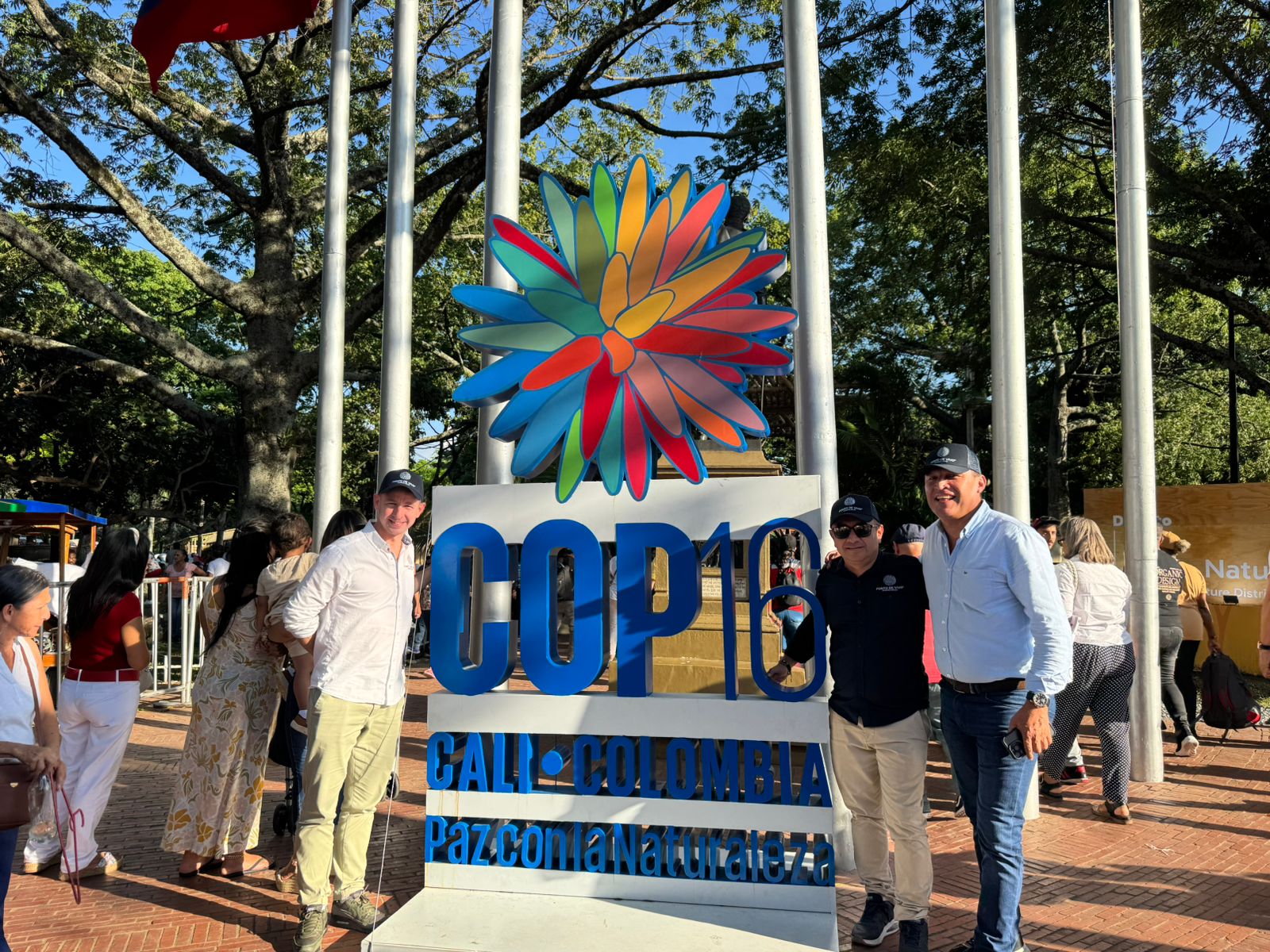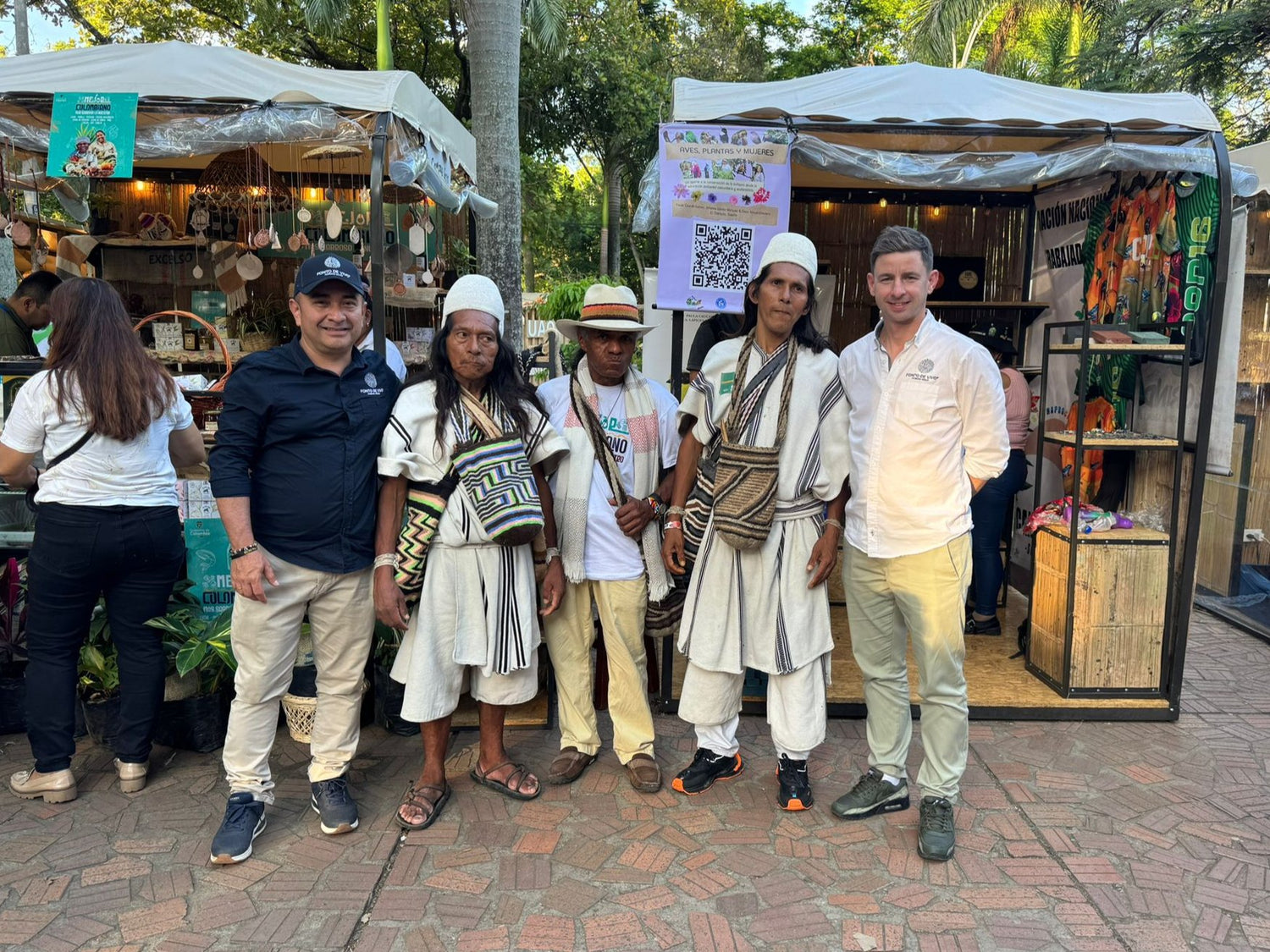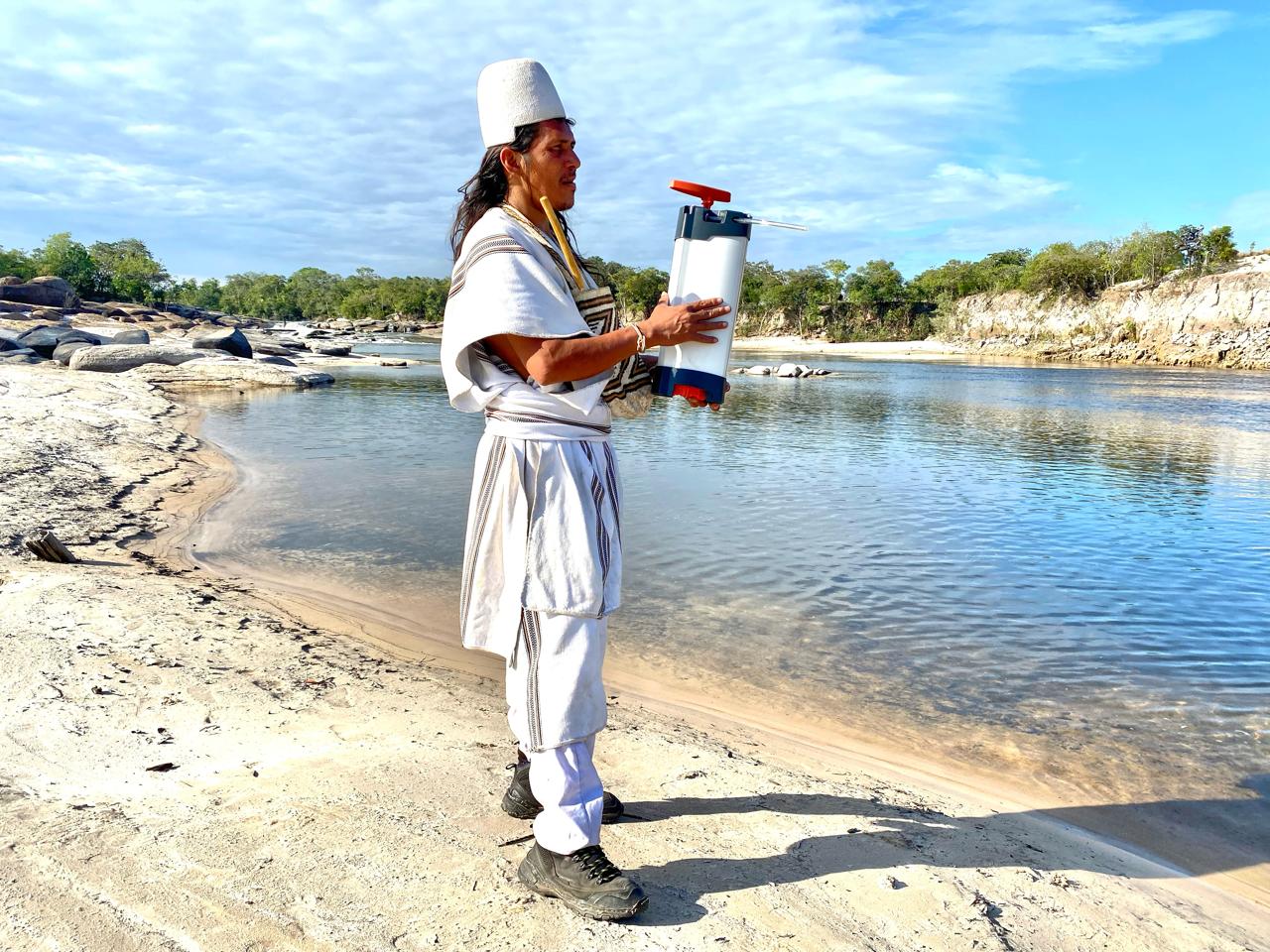
Fonto de vivo and ORISA® at COP16 in Cali
The COP16 on biodiversity, recently held in Cali, Colombia, was much more than just a meeting on environmental conservation. It was a crucial moment for establishing collaborations and reinforcing concrete actions in favour of global biodiversity and the well-being of indigenous communities, the guardians of nature.

Why did Colombia host COP16?
Colombia is one of the planet's greatest reservoirs of biodiversity. Its lush forests and unique ecosystems are home to exceptional flora and fauna, whose preservation is essential to the global ecological balance. But this biodiversity is also protected by indigenous peoples, who possess ancestral knowledge of agro-ecology, sustainable resource management and the maintenance of harmony between man and nature.
Implementing the COP15 agreements
One of the objectives of COP16 was to transform the resolutions of COP15, held in Montreal, into concrete action for biodiversity. This involves direct support for local and indigenous populations, who are the first to protect the ecosystems in which they live. Guaranteeing decent living conditions for these communities becomes a lever for preserving biodiversity.
Promising agreements on access to water and health
At COP16, we signed two memorandums of understanding:
- With UESVALLE, the Sanitation Institute of Valle del Cauca, the host region of COP16. This agreement is based on the implementation of a pilot project in the indigenous communities of this region, providing ORISA® water purifiers to vulnerable families. This system will provide clean water, reducing water-borne diseases and improving the quality of life of the beneficiary communities. The project includes monitoring the impact on the health of families, to accurately measure the positive effects.
- With the Association pour le Développement de la Culture des Peuples Pygmées du Gabon (Association for the Development of Pygmy Peoples' Culture in Gabon), which works to preserve the ancestral knowledge of pygmy peoples in agro-ecology and medicinal plants. This memorandum of understanding will enable ORISA® water purifiers to be tested in the real-life conditions of the Pygmies of Gabon, in the heart of the forest, while respecting and supporting their traditional practices. We will work with the association to identify the beneficiary families and set up a sustainable project with a view to funding on a larger scale.

Preserving biodiversity and improving living conditions
These partnerships embody our commitment to the environment and a better quality of life for indigenous populations. By working with local organisations, we aim to build bridges between environmental conservation, respect for ancestral knowledge and access to essential services such as water.
COP16 was not just a meeting for discussions, but a catalyst for action in favour of biodiversity and indigenous communities. We are convinced that these initiatives will contribute to building a future where man and nature can truly live in peace.